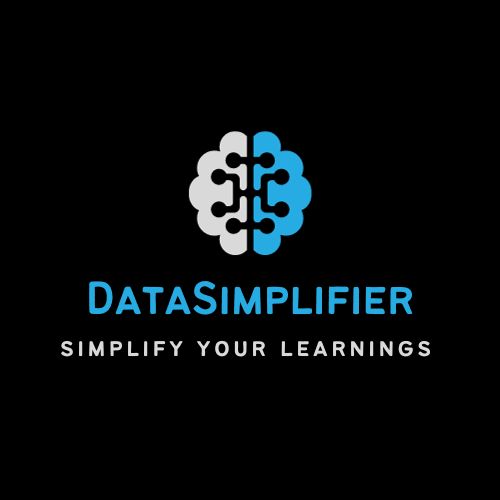Introduction
With the rapid growth of the tech world, Data Science with AI and ML is one of the most sought-after and best-paid career opportunities. For Indian students and professionals, being a part of this domain may be significant and exciting progress toward being a part of a global technological revolution. So, if you are preparing for interviews or are thinking of taking a Data Science AI ML course, you must be wondering, “What exactly do I need to know to stand out?

The guide covers all the information you need in order to thrive in the fields of Data Science, Artificial Intelligence (AI), and Machine Learning (ML). In understanding the main differences between Data Science vs AI vs ML-and which ones are most valuable to employers today, this article will take you through every important concept that will propel your career ahead.
With the end of this ultimate guide, you’ll gain complete knowledge on all the skills and certifications needed to reach the pinnacle of Data Science AI ML. This must be that final article that helps you prepare for interviews and make wise decisions regarding your career in AI, ML, and Data Science – You’re in the right place!
Understanding the Differences: Data Science vs AI vs ML
It has become fashionable to use the terms Data Science, Artificial Intelligence, and Machine Learning pretty much as if they meant the same. Those who have to go through an interview for a job in these areas would do well to know what makes them different.
Data Science: This is the collection, analysis, and interpretation of big data in order to provide some insights that can be helpful in business decision making. This process includes the application of statistical methods, data mining, and machine learning in deriving meaning from them.
Artificial Intelligence: Artificial Intelligence basically deals with developing systems that can act like a human brain. From speech recognition to decision-making, AI is ushering machines into acting in ways that people would admire as intelligent if they were to come from a human being.
Machine Learning (ML): This is one of the forms of AI, actually a science that enables computers to learn from data without explicitly programming them. In short, the development of an algorithm that learns from experience and improves with time.
So if you are asking, “Data Science or AI ML—which is better?”, the answer depends entirely on what career you want to pursue. Data Science is the best for those who can enjoy playing with data and solving business problems, while AI and ML are best suited for building intelligent systems or doing work on automation tasks.
Why AI and ML are Integral to Data Science
Very many ask if AI and ML are part of Data Science. To that, the answer is yes. AI/ML are actually necessary components of Data Science. Without the help of machine learning algorithms, it would be unthinkable to analyze many of the massive datasets a Data Scientist analyses daily.
Deep Learning in Data Science Deep Learning is a domain of machine learning where the algorithms use complex neural networks to model complex patterns in data, so that areas such as image recognition or natural language processing and autonomous systems can be solved with it.
AI and ML in Data Science Projects Most real-world Data Science projects involve some application of AI or ML. It may be used for predictive modeling, the development of recommendation systems, or fraud detection among other things.
How to Choose the Best Course in Data Science, AI, and ML
The options for Data Science AI ML courses seem endless, but the million-dollar question is: Which course is best suited for you? Here are a few tips.
Find Courses with Truly Comprehensive Curriculums: The better courses cover everything from Data Science basics all the way to advanced topics in AI, ML, and Deep Learning. Be sure that the courses have hands-on projects along with real-world case studies.
Certifications Matter: In India, certifications from well-known institutions such as Coursera, edX, or Udemy will add a lot of weightage to your resume. Look for certifications that are endorsed by industry leaders for Data Science and AI.
Career Support: Some of the top-notch courses will offer services like resume reviews, interview preparation, and assistance in job placement. This can be especially helpful for students and professionals coming out of the Indian institutes who need entry into the industry.
Key Skills You Need to Excel in Data Science, AI, and ML
Mastering key skills is fundamental to acing your interviews and building a successful career in Data Science AI ML. Let’s go deeper into each skill so that you understand its importance and how you can grow it.
Programming Skills
Then comes the requirement for proficiency in programming languages, something that must lie down specifically in their backpack: Python and R. These are the languages most applied in industry while handling data, building models, and developing algorithms. Python, for one, is very much preferred because of NumPy, Pandas, Scikit-Learn, and TensorFlow, among others. So, if you are a beginner, here’s a plan:
Python – Pandas for data manipulation and NumPy for numeric computations. Deep learning libraries such as Scikit-Learn, TensorFlow.
R-Deep learning with specified libraries: Although R is extensively used for statistical analysis and visualization of data, some important libraries which form the toolkits of an R programmer are ggplot2 and caret.
Practice/Apply coding on as many platforms as you can on Kaggle, LeetCode and HackerRank to hone your problem-solving skills.
Math and Statistics
A good foundation in statistics, probability, and linear algebra is the backbone on which one builds machine learning models. You will be tested often on your ability to apply these statistical concepts, such as hypothesis testing, confidence intervals, Bayesian probability, etc., to problems from life. Furthermore, in machine learning, one needs to have really very strong bases for linear regression, logistic regression, and gradient descent. Tip: Try to solve real problems in Kaggle or play with some datasets that exist on UCI Machine Learning Repository to apply your math and stats knowledge in real-world issues.
Data Visualization
Data visualization is an important tool for communication of insights to a non-technical audience. Tools like Tableau, Power BI, and Python libraries Matplotlib and Seaborn are used while drafting informative and aesthetically pleasing charts. The ability to depict complex data in a simple, digestible format will often separate you as a Data Scientist. Pro Tip: Add data visualization projects to your portfolio. Demonstrate how you can make raw data actionably insightful using Tableau Public or Google Data Studio to craft interactive dashboards.
Machine Learning Algorithms
Now, at its core, knowing machine learning algorithms forms part of AI and ML. This means you should have a good grasp of the following algorithms:
This encompasses supervised learning, including concepts like linear regression, decision trees, SVMs.
Additionally, unsupervised learning using K-means clustering, hierarchical clustering, and PCA.
Lastly, deep learning using neural networks, CNNs, and RNNs.
Actionable Tip: Rebuild models from scratch using the Iris, MNIST, and IMDB Movie Review datasets. Deep learning projects should be completed using libraries such as TensorFlow and Keras.
Big Data Tools
Now that big data reigns supreme, one should be familiar with such platforms as Hadoop and Spark for processing huge chunks of complex data that can’t be dealt with in traditional ways. SQL yet again is an important skill for those seeking a job, and since many companies are still using relational databases, the way one queries data will show off whether one has the skills to do the task the interviewer requires one to do; therefore, in an interview, good querying skills will do well for a candidate. Pro Tip: Practice using SQL on SQLZoo or Mode Analytics to hone those querying skills.
Common Interview Questions in Data Science, AI, and ML

Problem Solving Questions:
These are meant to test how well you can apply your knowledge to real-time problems. Employers will want to see how you approach complex challenges, break it down, and then come up with solutions to said problems. Common problem-solving questions include:
“You are given a dataset that has missing values. How would you handle it?”
“Design a recommendation system for an e-commerce website.”
“You’re working with an unbalanced dataset. How would you address this?
How to Address: Break it down step by step. For example, in the question of how to treat missing data, you could indicate methods such as mean/mode/median imputation, using knn-imputation, or removing missing data if it’s not critical. Explain the pros and cons of each method, and for the recommendation system question, discuss collaborative filtering, content-based filtering, and hybrid approaches. Pro Tip: Practice case studies. Solve interview style questions on websites like StrataScratch and Leetcode to help your problem-solving skills develop.
Behavioral Questions
Companies also want to know about your behavior in the team setting and how you react to problems. The behavioral questions are used to measure your soft skills in communication, teamwork, and time management. Some examples include:
Tell me a time when you worked on a challenging project. How did you overcome the obstacles?
Tell me about a situation where you had to explain an intricate technical concept to a person without any background in that technology.
How do you prioritize tasks when multiple projects are being worked upon?
Approach: Using the STAR method: Situation, Task, Action, Result. This gives a clear and concise answer that should always place forward the approach toward solving a problem and the result of such actions. In this case, for example, while trying to explain technical concepts to less technical people, one would explain how easy it is to break down complicated machine learning algorithms using charts or analogies.
Real World Usage of Data Science, AI, and ML

What is a huge attraction in the study of Data Science, AI, and ML? It’s their application to real-world applications. It’s transforming the world from the perspective of industry. Understanding the nature of this application can give you an added advantage in any interviews. Here are a few of the industries using AI and ML:
Healthcare: AI-powered diagnostics, including the diagnosis of diseases from medical images (for instance, convolutional neural networks apply on MRI scans for scan analysis) are revolutionizing care for patients. Machine learning models are also applied in companies in predicting patient outcomes, optimizing the operations in the hospital and the acceleration of drug discovery. Example: Google Health has developed AI tools that could detect diabetic retinopathy through retinal images without expensive and time-consuming manual evaluations.
Finance: In finance, data science and AI are used intensively in credit scoring systems and fraud detection. Within transaction data, machine learning algorithms flag suspicious activities in real-time. Example : JPMorgan uses AI for fraud detection and making data-driven investment decisions through predictive modeling.
E-commerce: Recommendation engines are at the center of e-commerce platforms like Amazon and Flipkart. The engines, including collaborative filtering and content-based filtering, recommend products that the user, in their mind, would look for based on their behavior and preferences. For example, Netflix uses machine learning models to provide recommendations of personalized content, which enhances user satisfaction and engagement.
Retail: Retailers use AI to know how to handle their stock; they can predict demand. Walmart, for instance, uses big data analytics that could predict for it what products will be in high demand and so could optimize its stores’ layouts. Zara, for instance, uses AI algorithms in analyzing trends of consumers and makes real-time decisions about their inventory on how to stock what products when.
Career Paths in Data Science, AI, and ML
Machine Learning Engineer
The role of a Machine Learning Engineer is to design and deploy machine learning models at scale with respect to business needs. It requires the union of software engineering expertise and data science expertise. A Machine Learning Engineer collaborates with Data Scientists to create theoretical models into applicable, scalable solutions. Skills: Python, TensorFlow, PyTorch, Scikit-Learn, Deep learning skills, Cloud Computing (AWS, GCP). Salary in India: ₹10-15 lakhs per annum for entry-level profiles; ₹20-30 lakhs for senior-level profiles.
AI Engineer
AI Engineers design and implements AI models onto existing systems. Work in AI development requires a deep understanding of artificial intelligence, natural language processing, and deep learning. This is the domain where AI Engineers typically get their chance to work on advanced projects such as autonomous driving, speech recognition, and AI-powered customer service bots. Key Skills: Deep Learning, Neural Networks, Natural Language Processing (NLP), Computer Vision, TensorFlow, Keras Salary in India: ₹8-15 lakhs per annum for entry-level; ₹20-35 lakhs for experienced professionals working on advanced AI projects.
Data Analyst
Data Analysts interpret data and produce reports from which business decisions are made. The position is not technical as that of a Data Scientist; however, Data Analysts need to interact with databases, clean and analyze the data, and draw out insights using visualization tools. Important Skills: SQL, Excel, Python (basic), Tableau, Power BI, Data Cleaning Salary in India: 4-8 lakhs per year for entry-level roles; 10-15 lakhs for experienced analysts.
Data Engineer
Data Engineers design and maintain architecture that enables big data processing at scale, as well as ensuring the entire data pipeline is efficient, reliable, and scalable. Data engineers work with databases, cloud infrastructure, and big data tools. Key Skills: SQL, Hadoop, Spark, Python, Cloud Services (AWS, Azure), ETL processes Salary in India: ₹8-12 lakhs per annum for a fresher; ₹18-25 lakhs for a professional.
Business Intelligence (BI) Analyst
A BI analyst analyzes data that helps an organization make informed business decisions. Much of his work is usually with the management teams to be able to provide data-driven insights and recommendations. BI analysts focus on data visualization and explaining technical data into simple reports. Key Skills: SQL, Tableau, Power BI, Excel, Data Modeling Salary in India: ₹5-10 lakhs per annum for entry-level roles; ₹12-18 lakhs for senior roles.
How-to Guide for Building an Excellent Portfolio of Data Science, AI, and ML

Build a Personal Website or Blog:
Having a personal website or blog through which you can display your projects, write data science topics, and even share tutorials can really increase your visibility as an applicant. To begin with, blogging platforms that have come to your rescue are WordPress, GitHub Pages, and even Medium. Pro Tip: Write on trendy topics in AI and ML or create tutorials to show off your knowledge. You can write a blog post explaining how to apply TensorFlow for image recognition or the best way to handle an imbalanced dataset in machine learning. It also depicts the view of the potential employer that you possess that technical know-how, and you can clarify complex thoughts and ideas.
Join Competitions:
Competitions on Kaggle and DrivenData platforms are a great way to gain real-world experience and show one’s problem-solving skills in practice. Many of such competitions involve real-world company datasets, so winning can attract recruiters’ attention. Pro Tip: Even if you do not win, participating in a Kaggle competition can still help improve your skills and create a portfolio. Document your approach to the problem, solutions you tried, and insights you gained from the competition. It reflects that you continue learning with continuous dedication.
Group Projects;
Data Science and Machine Learning are team-based positions. Involvement in group projects with aspiring data scientists at online communities or local meetups can demonstrate your ability to work with others to employers. This also helps you understand working in a real-world scenario where different people would be working on the same project. Pro Tip: You can join data science communities in Telegram, Reddit, or LinkedIn where people with similar interests can find you and collaborate with each other on the projects. Working with others can improve your team skills and expose you to new ideas and techniques.
Data Visualizations:
Any data science project involves visualization. These are examples of how complicated datasets become actionable insights in your portfolio, using meaningful and eye-catching reports or dashboards involving tools such as Tableau, Power BI, or Matplotlib. Pro Tip: Publish a profile on Tableau Public so that you’ll be able to share interactive dashboards or come up with a Power BI project, which demonstrates storytelling ability through data wherein visual insights become action. A beautifully designed dashboard makes your portfolio stand out.
Add Certifications to Your Portfolio:
You may add credibility to your portfolio by completing those certifications from such respected platforms as Coursera, edX, or Udemy. Make sure you prominently feature these certifications both on your resume and on your portfolio. In fact, having certifications in specific tools like TensorFlow, AWS, or Azure can become invaluable, since most companies use these platforms for their AI and ML projects. Pro Tip: Link your certificates to your LinkedIn profile and personal website. This makes it easier for recruiters to verify your credentials and, more importantly, shows the commitment you have toward staying updated with the latest and greatest.
How to Stay Updated with the Latest Trends
Join Online Communities :
While that is not stating you use AI and ML, joining the community is a great way to stay informed and learn faster. Whether it is in Reddit’s r/datascience, r/machinelearning, or Kaggle discussion boards, or even Telegram groups, you can ask any questions you want to, share knowledge, and collaborate with others. Pro Tip: Join Telegram groups related to AI, ML, or Data Science, where the professionals and enthusiasts discuss the latest trends and share learning resources. You could also join LinkedIn groups where you can expand your network of professionals and recruiters who are actively hiring.
Participate in Research Papers and Blogs:
If one is interested in AI and ML, then contributing to research papers or writing blog posts on topics relevant to work will be beneficial. You may disseminate your ideas and results on platforms like Medium, Towards Data Science, or KDnuggets. It is a good way to keep track of accountability about what you are learning, following the latest developments in the field. Bonus: Websites such as arXiv and Google Scholar post cutting-edge research papers on AI and ML. The more you read them, the better positioned you are ahead of the curve and better enlightened on where the field is headed.
Conclusion
As you have seen in the above description, the career of Data Science with AI and ML has limitless opportunity for growth and success. Whether it is the case of a fresh graduate looking to make the first entry into the job market or that of a working professional looking to pivot, the demand for Data Science AI ML professionals is only growing in India and all around the world. The most important factor that defines you in a competitive job market is mastering the right skills, opting for the right courses, and staying updated about all the latest trends in the industry.
You have now achieved a proper understanding of the distinctions between Data Science, AI, and ML, the significance of certifications, and preparation for your next round of interviews. This guide was to equip you with all the knowledge that would be required to assure victory in your next interview, backing you up for landing a rewarding job in any of these disciplines.
To be informed of fresh informative articles like this one, sign up for our channels on Telegram: we publish insights into Data Science, AI, and ML plus free job notifications. We have created 10+ channels for different niches. If you are interested in technical discussions, job updates, or interview tips, we have the right channels for you.
And here’s something special for you-the dedicated reader. Since you managed to get through this article to the very end, you deserve a reward! We have a premium Telegram group-an exclusive community where like-minded people are passionate about Data Science, AI, and ML. To join the group free of charge, just comment below with your Telegram handle, and we will send an invitation to the premium group. This community will not only treat you with personal support but also show you all the exclusive resources. You will be part of a great network of helping others.
So what are you waiting for? Kick start your journey today with proper resources, the right community, and proper guidance. Best of luck in your Data Science AI ML career-you’ll definitely rock!
Share the post with your friends

1 thought on “Data Science or AI/ML: Which 1 is Best for Your Dream Job?”